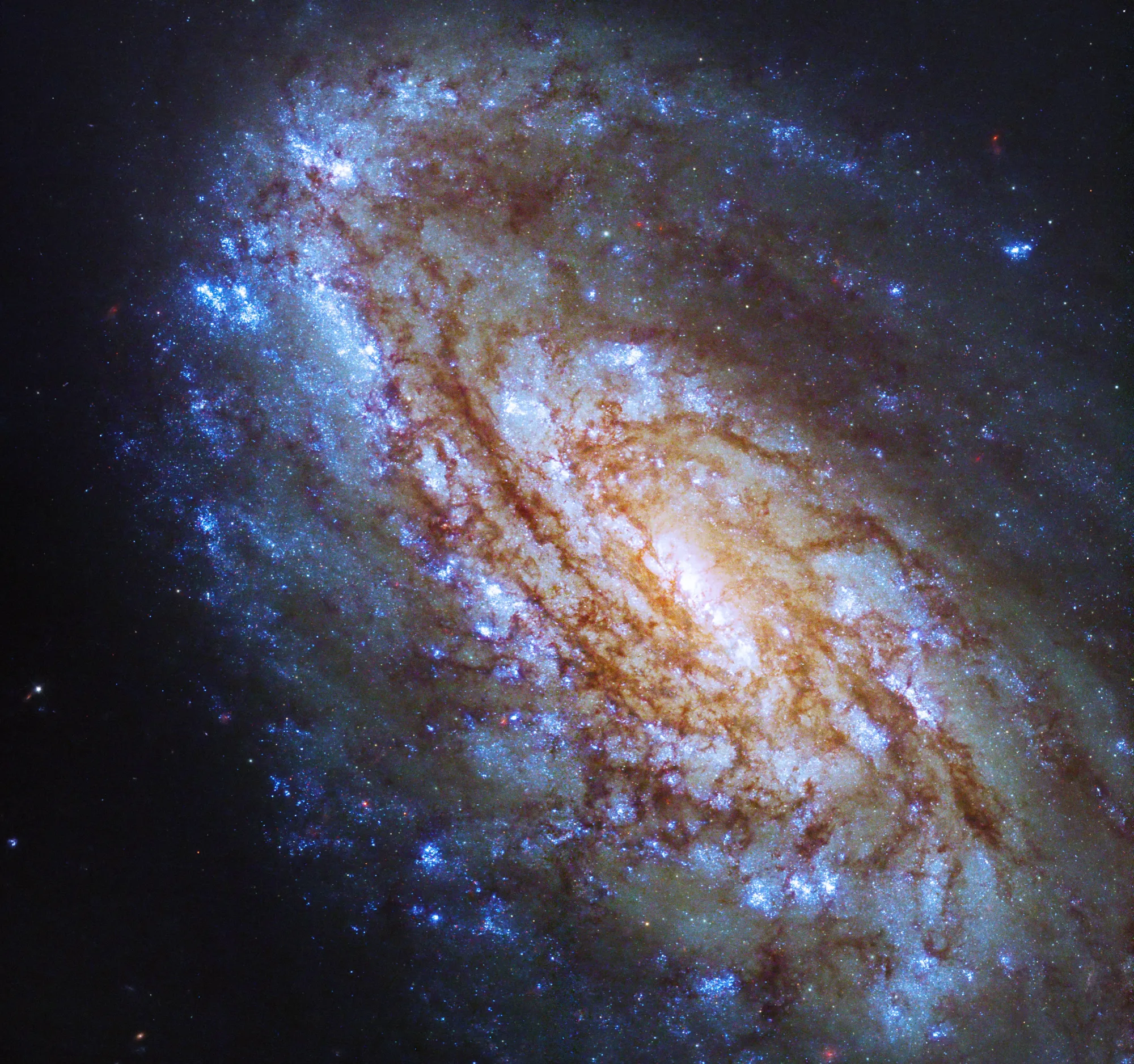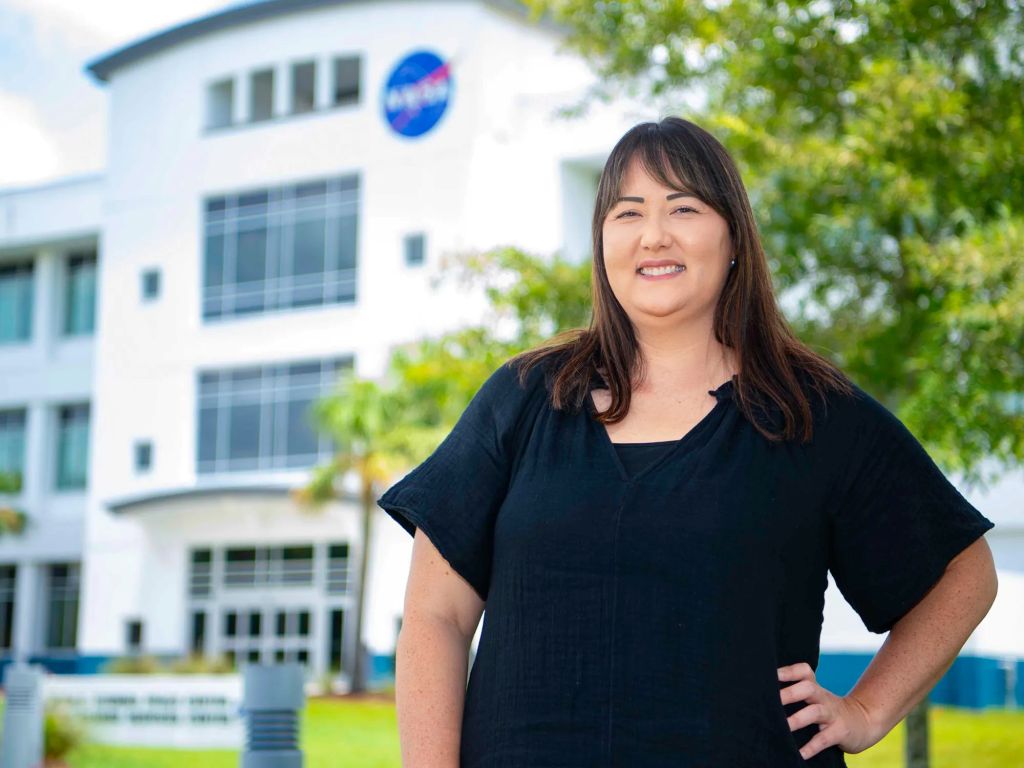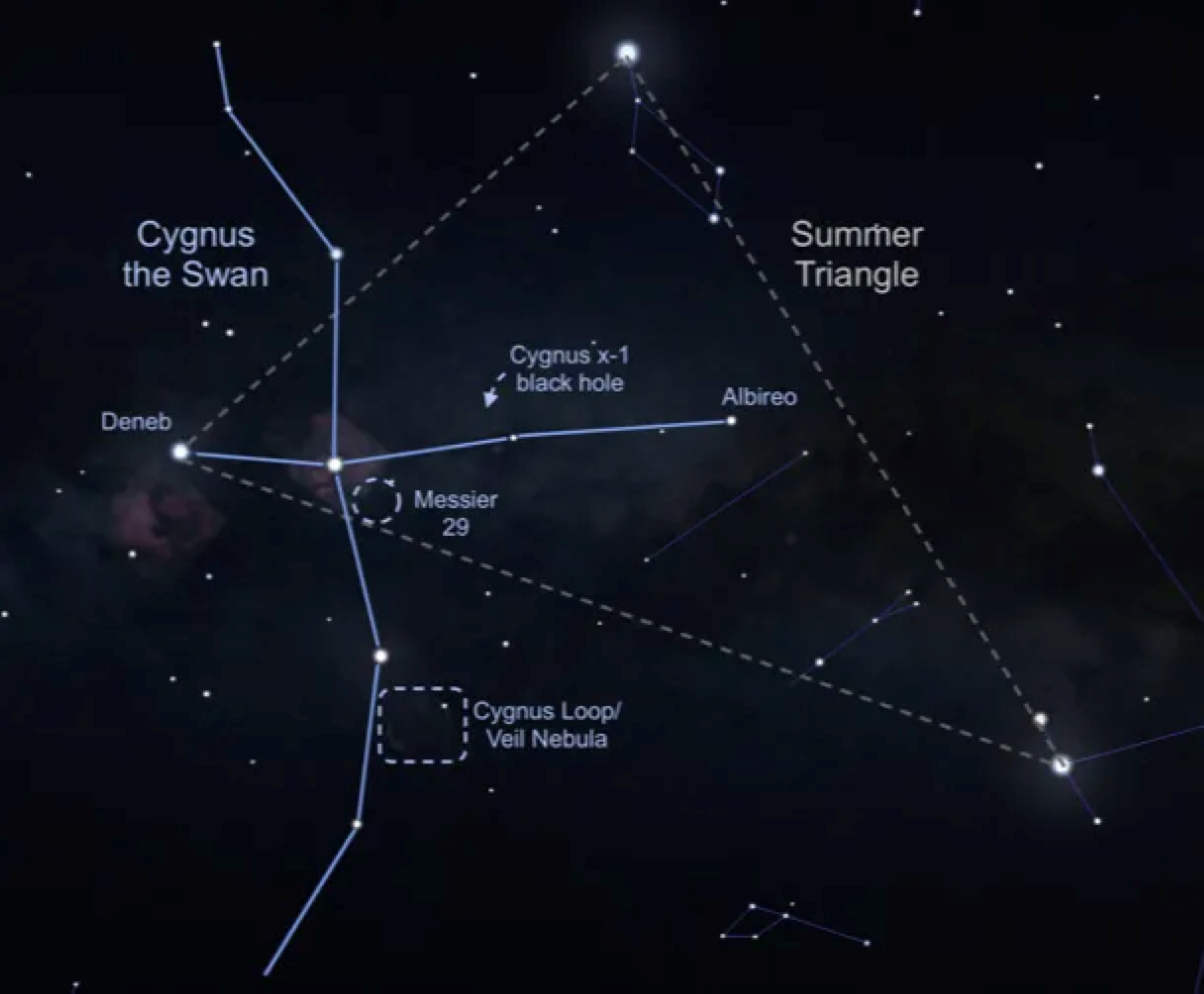Aaron Vigil Helps Give SASS to Roman Space Telescope

The stars in the big Wyoming skies inspired Aaron Vigil as a child to dream big. Today, he’s a mechanical engineer working on the Solar Array Sun Shield (SASS) for the Nancy Grace Roman Space Telescope at Goddard.
Name: Aaron Vigil
Title: Mechanical Engineer
Formal Job Classification: Aerospace Technology, Flight Structures
Organization: Mechanical Engineering, Engineering and Technology Directorate (Code 543)
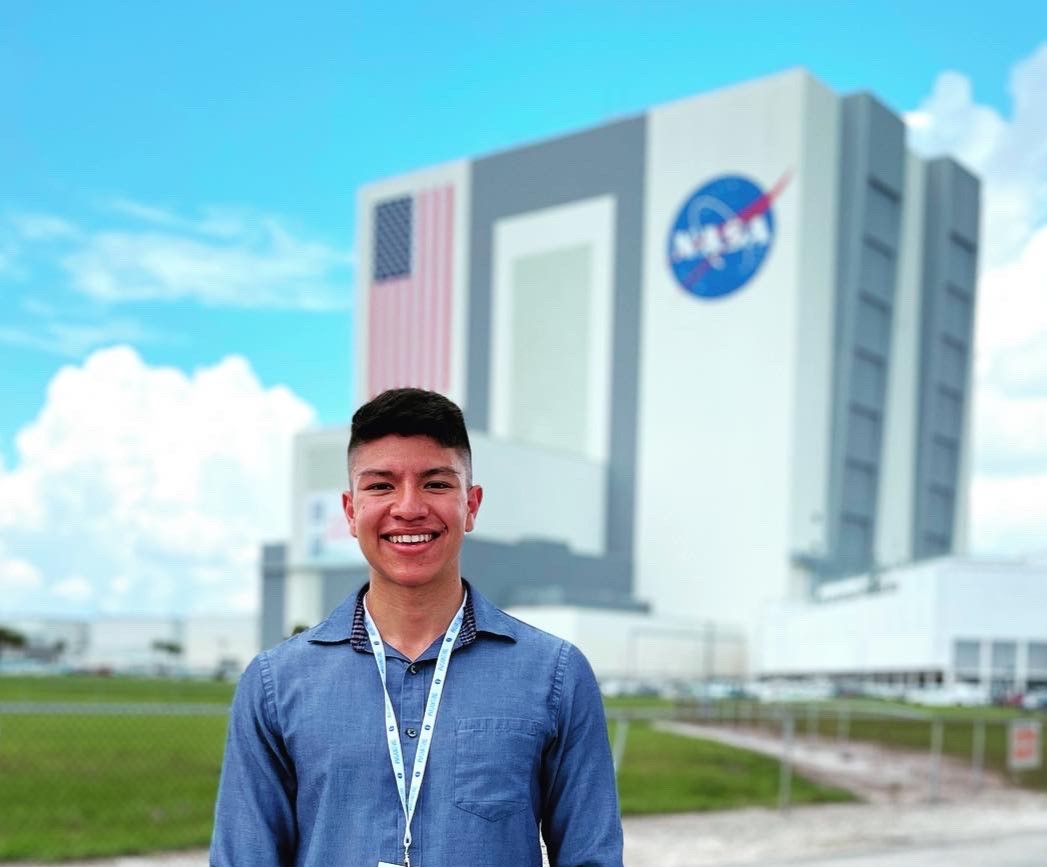
Aaron Vigil is a mechanical engineer at Goddard Space Flight Center in Greenbelt, Md.
Photo courtesy of Aaron Vigil
What do you do and what is most interesting about your role here at Goddard? How do you help support Goddard’s mission?
I currently work on the Solar Array Sun Shield (SASS) for the Nancy Grace Roman Space Telescope. I support daily integration and testing tasks related to the SASS assembly. I spend a lot of my time working with Goddard mechanical technicians and other engineers to execute test plans and procedures to assemble, test, and integrate SASS hardware.
What interests you about space?
I grew up in rural Wyoming. I did a lot of hiking, hunting, fishing, and camping. We were on the mountains constantly. I remember being up at night, sitting around the campfire with my family, looking up at the stars.
I was fascinated and captivated! I wanted to learn more about space.
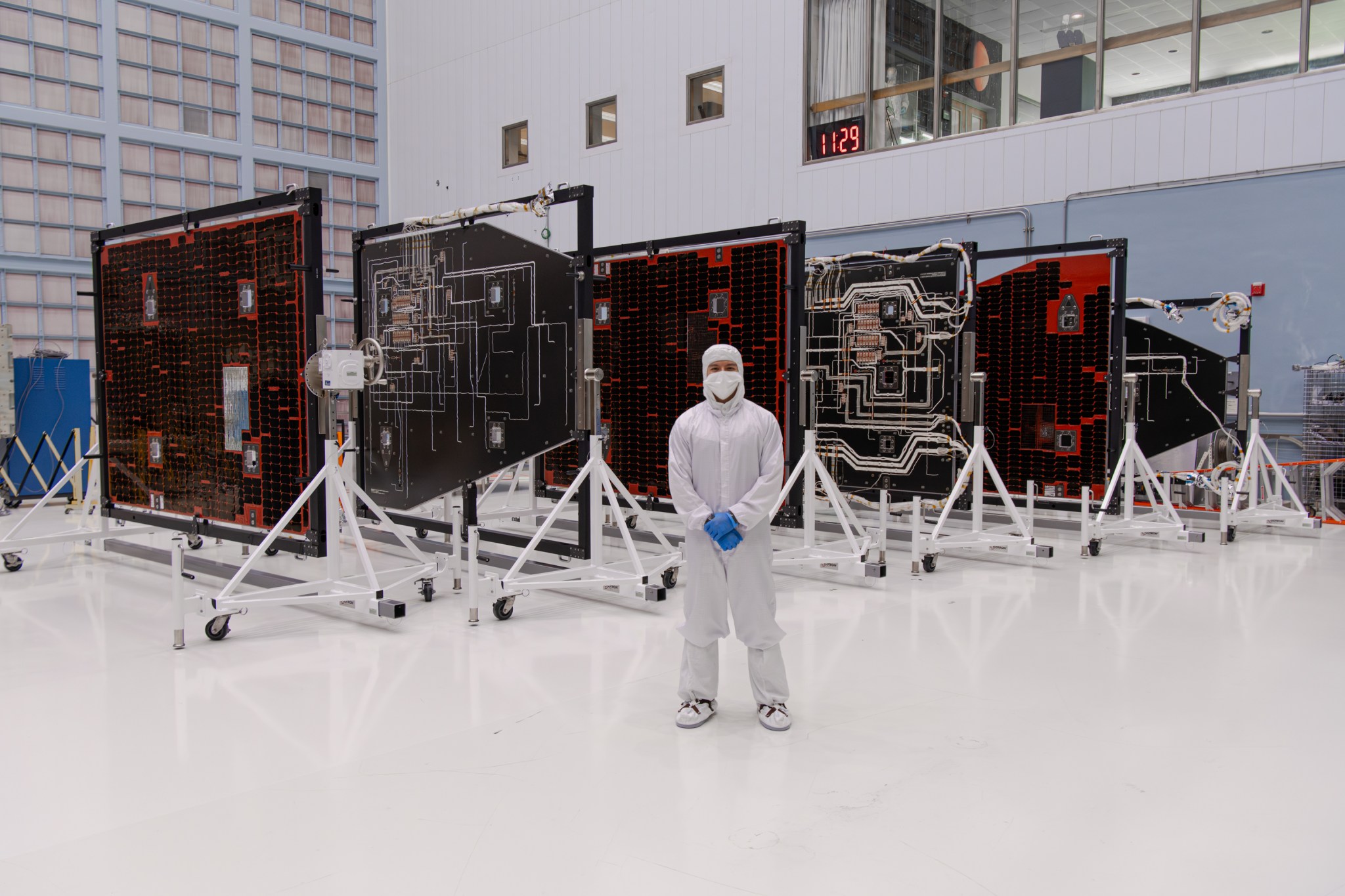
“I currently work on the Solar Array Sun Shield (SASS) for the Nancy Grace Roman Space Telescope,” said Aaron. “I support daily integration and testing tasks related to the SASS assembly.”
Photo credit: NASA/Sydney Rohde
What brought you to Goddard?
In 2019, I began a B.S. in mechanical engineering at the University of Wyoming in Laramie.
In the spring of 2020, I reached out to an organization at the University of Wyoming looking for opportunities to further my education in the field of aerospace. They introduced me to the Wyoming Space Grant Consortium and, through their website, I learned of and applied to be a NASA Office of STEM Engagement intern in the spring of 2021. I received an offer and, in the summer of 2021, began working as a remote intern at Goddard on the 3D modeling and rendering of early spacecraft.
How did the Hispanic Advisory Committee for Employees (HACE) introduce you to the Pathways Program?
The summer of 2021, the different employee advisory committees at Goddard held presentations for the interns. I am Hispanic; I naturally gravitated towards HACE and fell in love with the extremely warm community they provided.
I attended their monthly meetings and I presented to the center at their end of the summer intern presentation. HACE introduced me to the Pathways Program, and the organization was instrumental in my becoming a Pathways student intern. This Pathways internship eventually led to my conversion to a fulltime employee and my current position in the Mechanical Engineering Branch here at Goddard.
What one piece of advice would you give to a new intern?
Never be afraid to ask questions and always seek out new connections. Goddard is a well of knowledge, you can learn and grow a lot from those around you.
Tell us about your mentorship at Goddard.
Jack Marshall is an aerospace engineer and the lead for SASS. When I was an intern, he showed me a glimpse into the world of engineering, providing perspective on all aspects of the project from administrative to technical. He continues to guide my engineering journey and has been instrumental in developing me into the engineer I am today. I am incredibly grateful to Jack for his welcome and his guidance.
What is the coolest part about your job?
The best parts about my job are the people I get to work with and the hardware we get to build. Whether we’re in a small lab in Goddard’s integration and testing facility or a large clean room, I get to spend most of my days working with incredible people to build, test, and integrate flight hardware. Every day there is something to be excited about and someone I get to work with who is likely to teach me something new. That excitement makes my work fun.
It’s also fun to work in facilities like the largest clean room at Goddard, where the James Webb Space Telescope was built. It was interesting getting used to being gowned up. You start with removing electronics and putting on a face mask, hair net, and shoe covers, before taking a quick air shower. Next comes the hood, coveralls, and boots, before taping your gloves and finally entering the clean room.
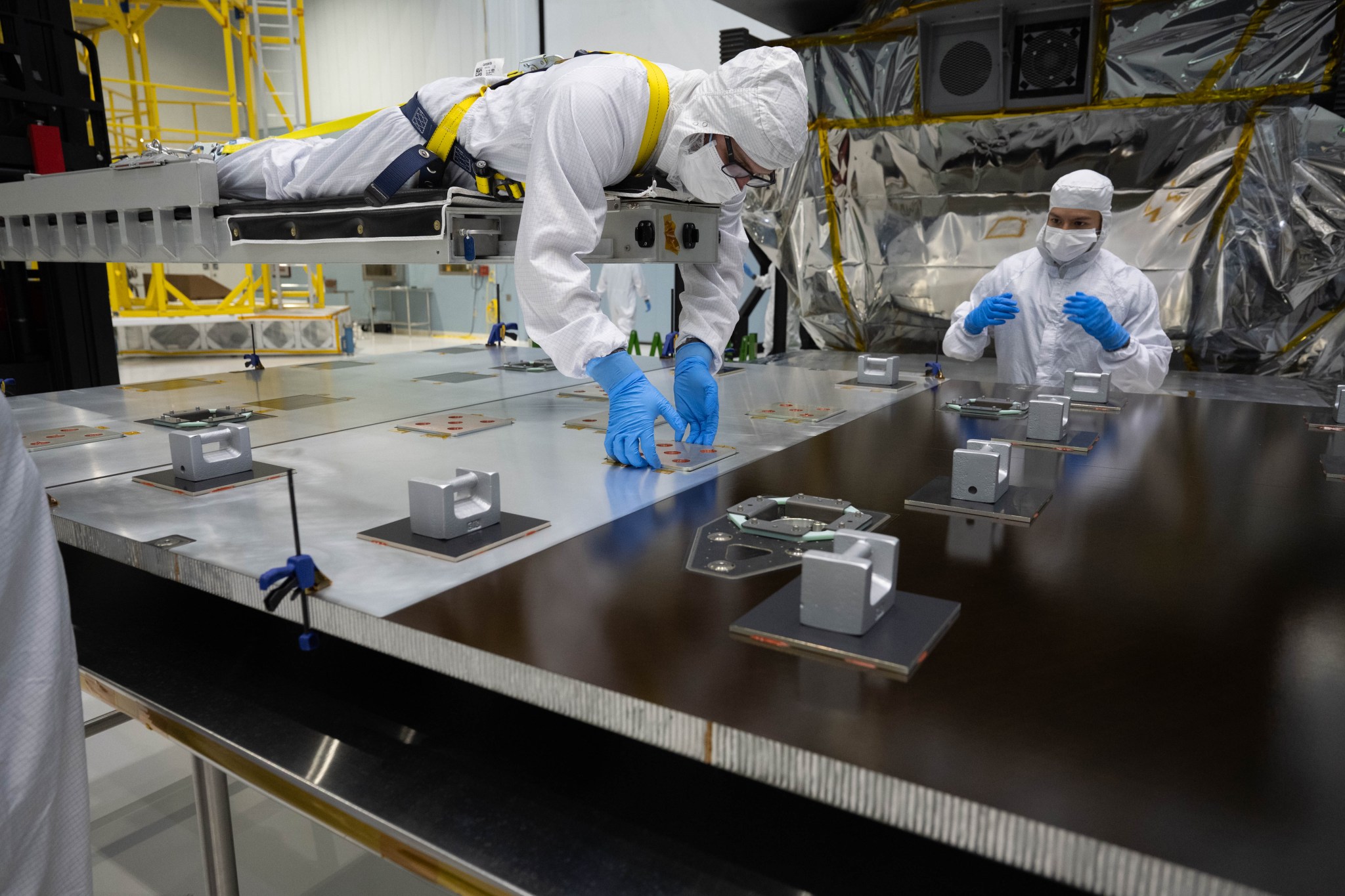
“Whether we’re in a small lab in Goddard’s integration and testing facility or a large clean room, I get to spend most of my days working with incredible people to build, test, and integrate flight hardware,” said Aaron. “Every day there is something to be excited about and someone I get to work with who is likely to teach me something new.”
Photo credit: NASA/Jolearra Tshiteya
What do you hope to be doing in five years?
I would hope to have the opportunity to continue learning and working here at Goddard. I love what I do, and I hope to help others interested, find a similar path to NASA.
What do you do fun?
I still love to go fishing and hiking any chance I get and have been looking forward to doing more here in Maryland. Since moving to the area, I have also been enjoying attending Nationals baseball games in D.C., and I have been looking for opportunities to continuing to play music since graduating college.
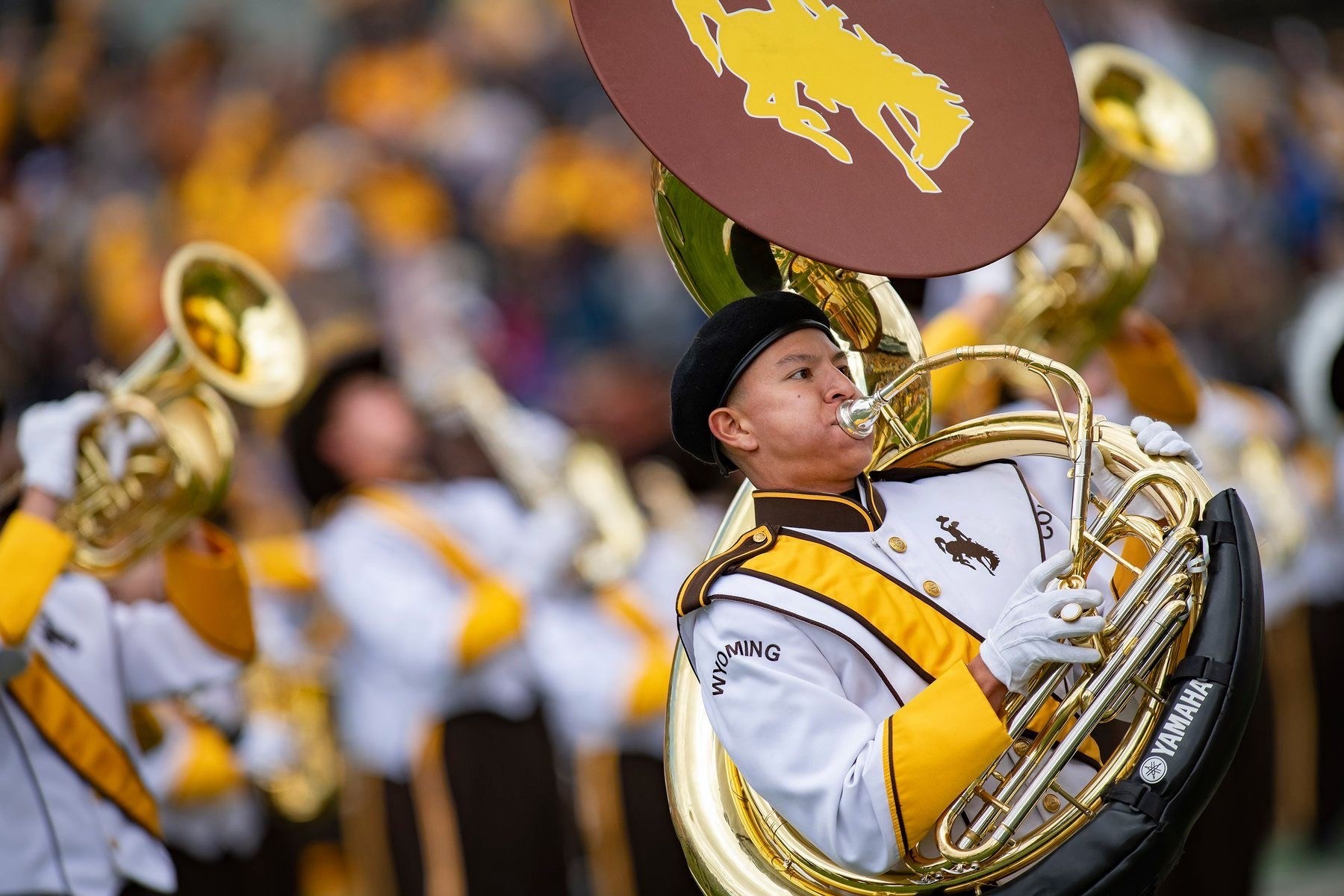
Aaron Vigil plays the sousaphone at the University of Wyoming in Laramie.
Photo courtesy of Aaron Vigil
Who inspires you?
My biggest inspirations have been my parents and grandparents, without them I would not be where I am today. I cannot thank them enough. They provided me my foundation and have supported me throughout my life, encouraging me to never give up. They have always had my back.
I also want to thank my Wyoming community where I grew up and my early mentors within that community.
What is your “six-word memoir”? A six-word memoir describes something in just six words.
Grounded by roots, but always growing.
By Elizabeth M. Jarrell
NASA’s Goddard Space Flight Center, Greenbelt, Md.

Conversations With Goddard is a collection of Q&A profiles highlighting the breadth and depth of NASA’s Goddard Space Flight Center’s talented and diverse workforce. The Conversations have been published twice a month on average since May 2011. Read past editions on Goddard’s “Our People” webpage.

